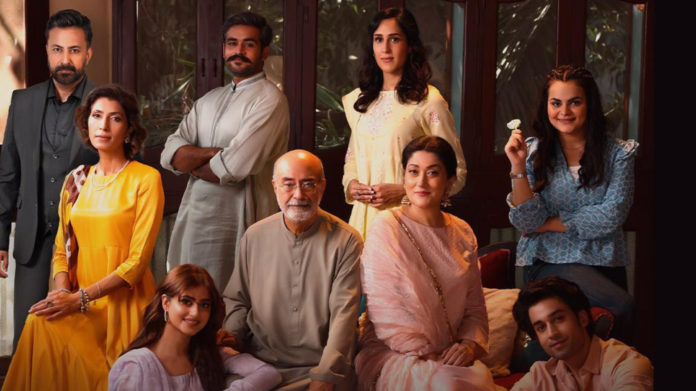The Pakistani drama industry is finally catching up to the world and we can confidently say this because we have dramas like Sar-e-Rah, Pinjra and my personal favourite, Kuch Ankahi, popping out left, right and centre. Our drama industry is shifting, albeit gradually, from all those cliched subjects, moving towards a more realistic approach, focused on educating the society.
Kuch Ankahi, on ARY Digital, is taking the lead in breaking stereotypes. From breaking stereotypes around marriage contracts to a father rigidly supporting his daughters’ rights to inheritance, Kuch Ankahi is not your conventional drama, but one, that will educate you on so many fronts.
Here are a few stereotypes Kuch Ankahi has broken, eventually making us fall in love with its refreshing story line.
Kuch Ankahi Shows an Unconventional Father And His Daughters’ Share In Inheritance
Kuch Ankahi is the story of Agha Ji and his three daughters. Aaliya, played by Sajal Aly, Samiya, played by Mira Sethi, and Tanya, played by Qudsia Ali. Aaliya is the middle daughter, who is intent upon fighting and standing alongside her father, addressing the unlawful claims his family makes against his house, only because he doesn’t have a son.
Agha Ji, played by Mohammad Ahmed, is one strong man. He stands by his principles and vows to not back down and let his relatives win over his rightful property just because he doesn’t have a heir. He has educated his daughters, allowed them to stand tall with the world and supports them at every step of the way.
Sehrish played by Alina Abbas is Asfar Motiwala’s sister (Sheheryar Munawar). The sibling duo is entangled in a lawsuit for a piece of land and it is interesting to see Sehrish as a strong woman who doesn’t back down, only because her powerful brother exerts pressure for her to vacate the area and give up on her dream project.
Kuch Ankahi Breaks Stereotypes Around the Marriage Contract
Most of us women, who have watched Kuch Ankahi, will now know there is a whole page dedicated to a woman’s right to divorce, pocket money and various other lawful demands in the Islamic marriage contract.
What most women didn’t know was the fact that elders in the family alongside the maulvi cancel off the page, moving on to signatures of the bride and groom. It was refreshing to see Kuch Ankahi showcasing Samiya’s marriage and her family supporting her rights.
This one scene, where Samiya’s aunt (Vaneezah Ahmed) asks the maulvi to let Samiya fill up her demands on the marriage contract and not just cancel the page, certainly taught us a lot.
No, it doesn’t make the women go bold and brazen, but those who have seen the episode, will pass on the word and educate others about their rights in a marital contract, only to make sure, they are preserved and offered safety right there when they sign the marriage contract.
Empowering Women Characters
Its surprising to see a drama that doesn’t put across women as weak, feeble beings. Whether its the villain, played by Uroosa Siddiqui in Samiya’s life or whether it is the sister in law (nand) played by Vaneezah Ahmed. Whether its Aaliya, Samiya or Tanya, each and every woman in Kuch Ankahi is a representation of empowered women in their own way.
We specially love Samiya’s character for standing up quietly but firmly to her mother in law when it came to taking help from her father. Samiya’s mother in law is greedy and wants to live off Agha Ji’s expenses. However, there is Samiya, who firmly tells her husband she’ll support him through thick and thin but never ask her dad for help.
Another strong woman in Kuch Ankahi is Aaliya. Aaliya doesn’t back down and combats each and every battle head on. She was a fierce competitor for Salman (Bilal Abbas) before she became his friend, ruthlessly taking down each of the hindrance that came her way. Aaliya’s confidence, her composed nature and her eagerness to fight the world for her father and family is contagious.
For us, Kuch Ankahi has been a drama that is revolutionizing the drama industry, striking off one tabooed subject after another, subtly but firmly. What do you think about Kuch Ankahi. Let us know in the comments below.




